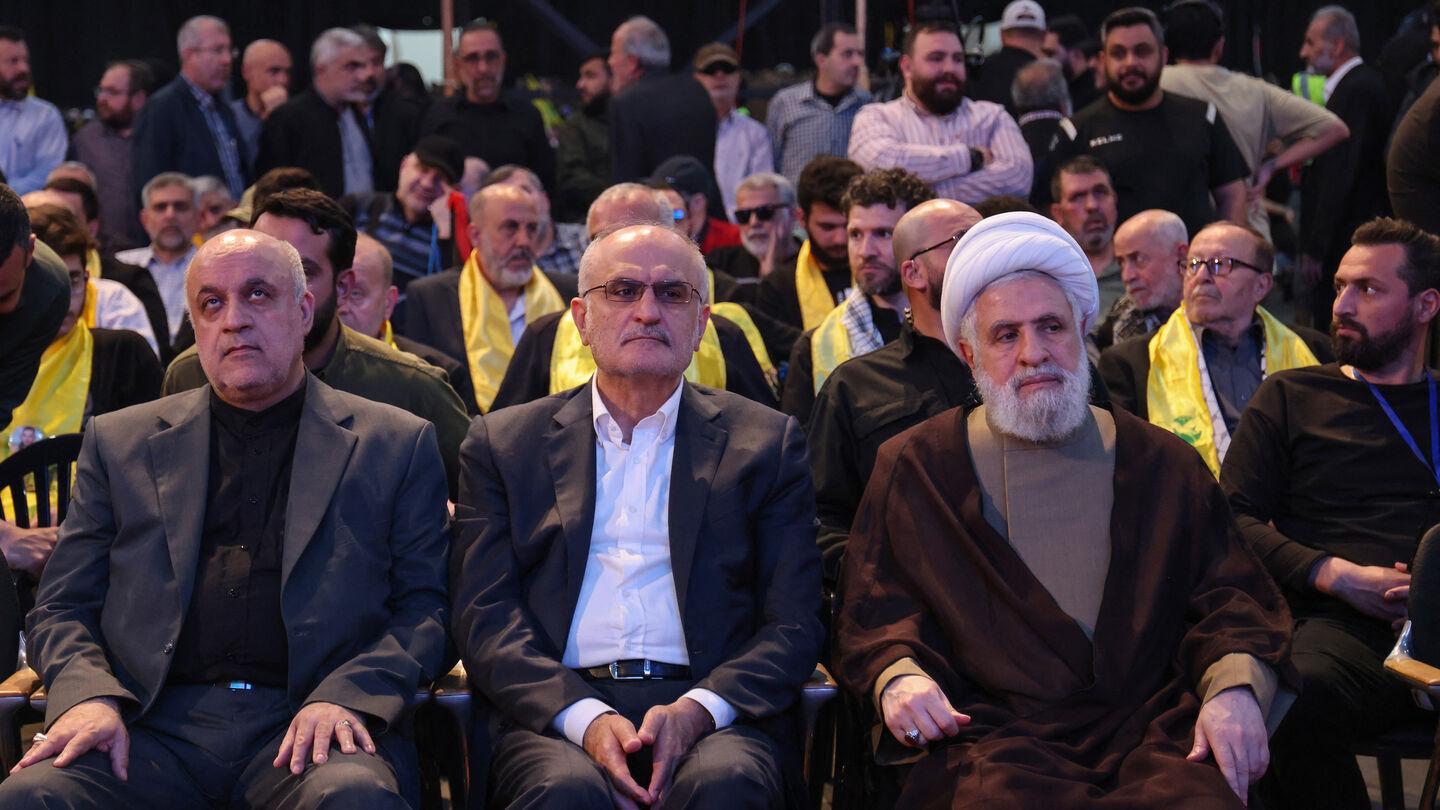
Lebanon summons Iran’s ambassador in warning against Hezbollah interference
The Lebanese Foreign Ministry told Iran’s ambassador not to interfere in Lebanon’s internal affairs on Thursday as pressure rises on Beirut to bring Hezbollah under state control.
Ambassador Mojtaba Amani was summoned to the Foreign Ministry on Thursday after he commented on the disarmament of Hezbollah. The ministry’s secretary-general, Hani Chemaitelly, spoke to him about the “necessity of adhering to diplomatic norms specified in the international treaties related to the sovereignty of nations and non-interference in internal affairs,” the official National News Agency reported.
Amani, posting on X on Friday, decried efforts to disarm Hezbollah, saying “the disarmament project is a clear conspiracy.” He said that countries that submit to disarmament become “vulnerable to attack and occupation,” citing Iraq, Syria and Libya.
“We in the Islamic Republic of Iran are aware of the seriousness of this conspiracy and its danger to the security of the peoples of the region. We warn others against falling into the enemy’s trap,” he said.
The ambassador addressed the issue further in an interview with Lebanese news outlet Al-Jadeed on Wednesday, saying Iran would agree to abide by what Lebanon decides to do regarding Hezbollah’s weapons, adding that bilateral relations “continue normally.”
Hezbollah is heavily armed and funded by Iran.
The longstanding issue of disarming Hezbollah has risen to the forefront of Lebanese politics in the past few months. Lebanese President Joseph Aoun vowed that all arms would come under the control of the state when he took office in January. He told the New Arab earlier this month that the state would have a monopoly on all weapons in 2025.
However, Aoun called the matter “a sensitive, delicate issue that is fundamental to preserving civil peace” on Sunday, telling reporters that “nobody is speaking to me about timing or pressure.”
The comments came as the Lebanese Health Ministry reported two people were killed in Israeli airstrikes in the south the same day.
Last week, Hezbollah chief Naim Qassem said the group “will not allow anyone to disarm the resistance” in an address. He added that Hezbollah is open to talks on a “comprehensive defense strategy” if Israel stops its attacks on south Lebanon.
Israel and Hezbollah reached a ceasefire in November of last year, though the Israeli military has continued to carry out strikes since then. On Tuesday, an Israeli strike killed a leader of the Hamas-aligned Jamaa Islamiya group in the south.
The ceasefire deal stipulated that Israel withdraw from southern Lebanon, Hezbollah pull back north of the Litani River and the Lebanese military deploy to the country’s south. Israel said in February that its forces would remain in five areas of southern Lebanon for security reasons.
The Lebanese army has reportedly made some progress in wrestling control of the south from Hezbollah. The Washington Post reported last week that the armed forces had dismantled more than 500 sites belonging to Hezbollah and other groups.
Aoun met with the commander of United Nations forces in southern Lebanon, Gen. Aroldo Lazaro, on Thursday and told him the Lebanese military continues to deploy to parts of the south vacated by Israel, the National News Agency reported.
US pressure on Lebanon to disarm Hezbollah is rising. US deputy special envoy for the Middle East Morgan Ortagus visited Beirut earlier this month, her second such trip since President Donald Trump returned to office in January, to press Lebanon on the issue.





